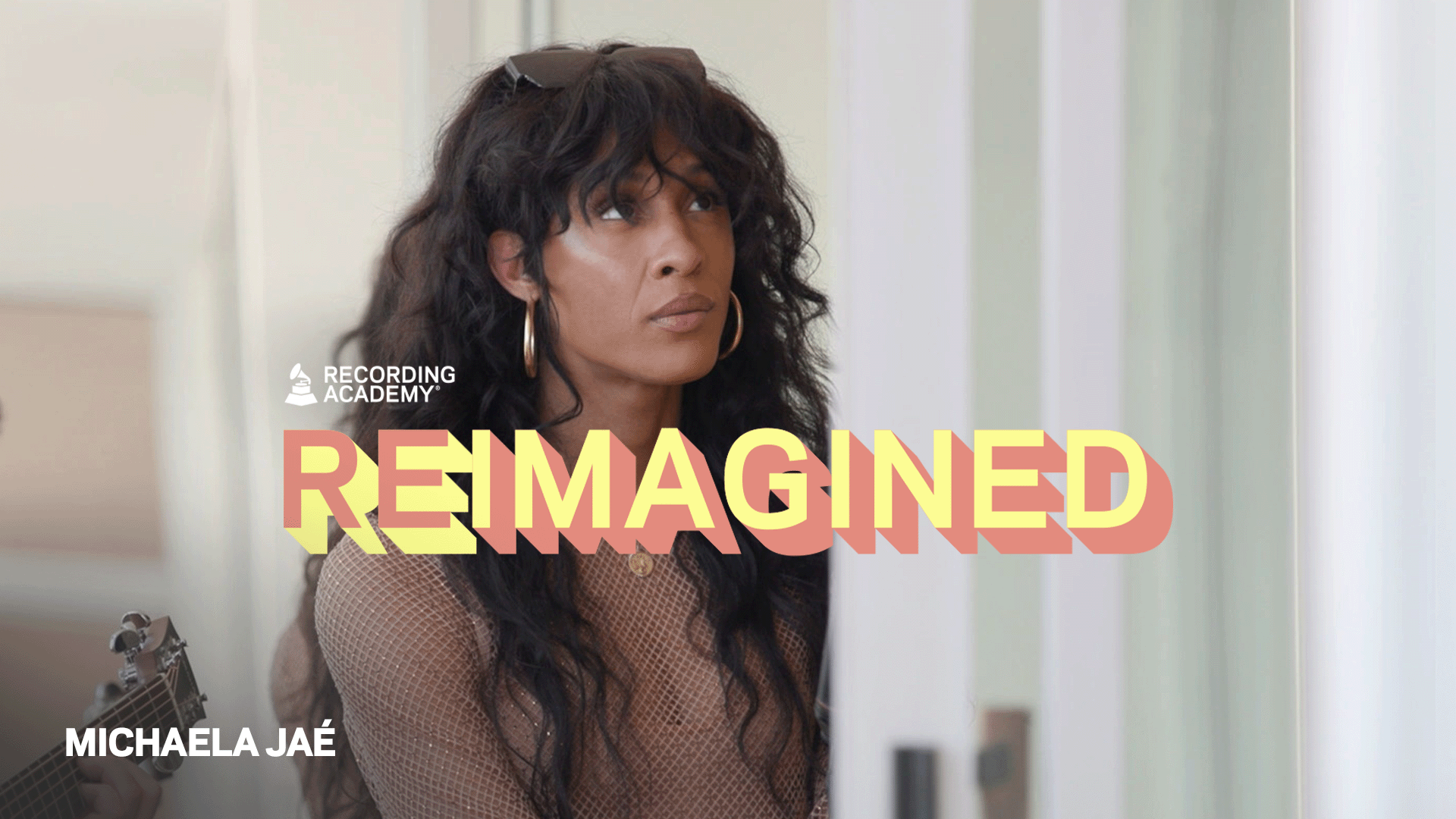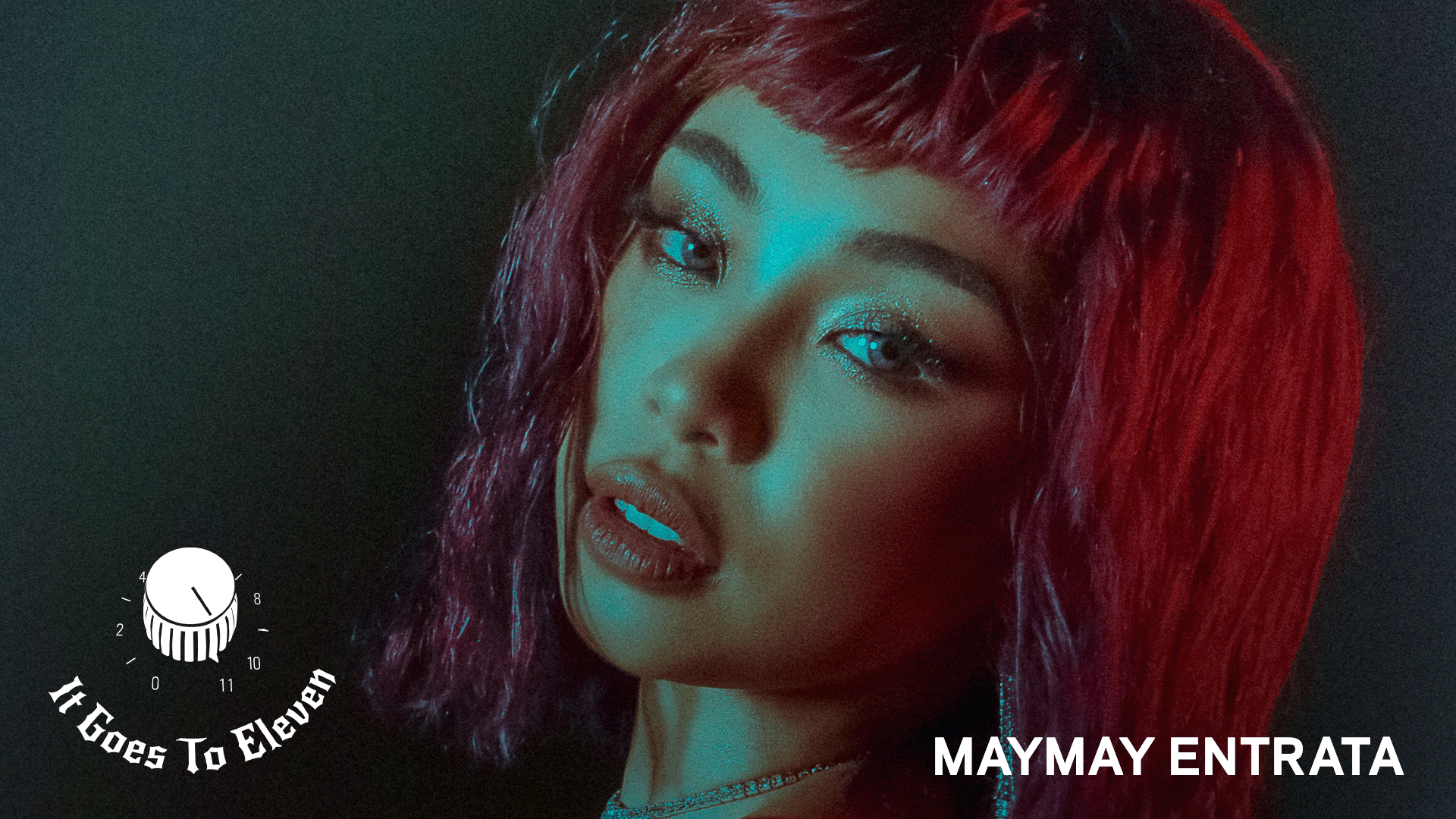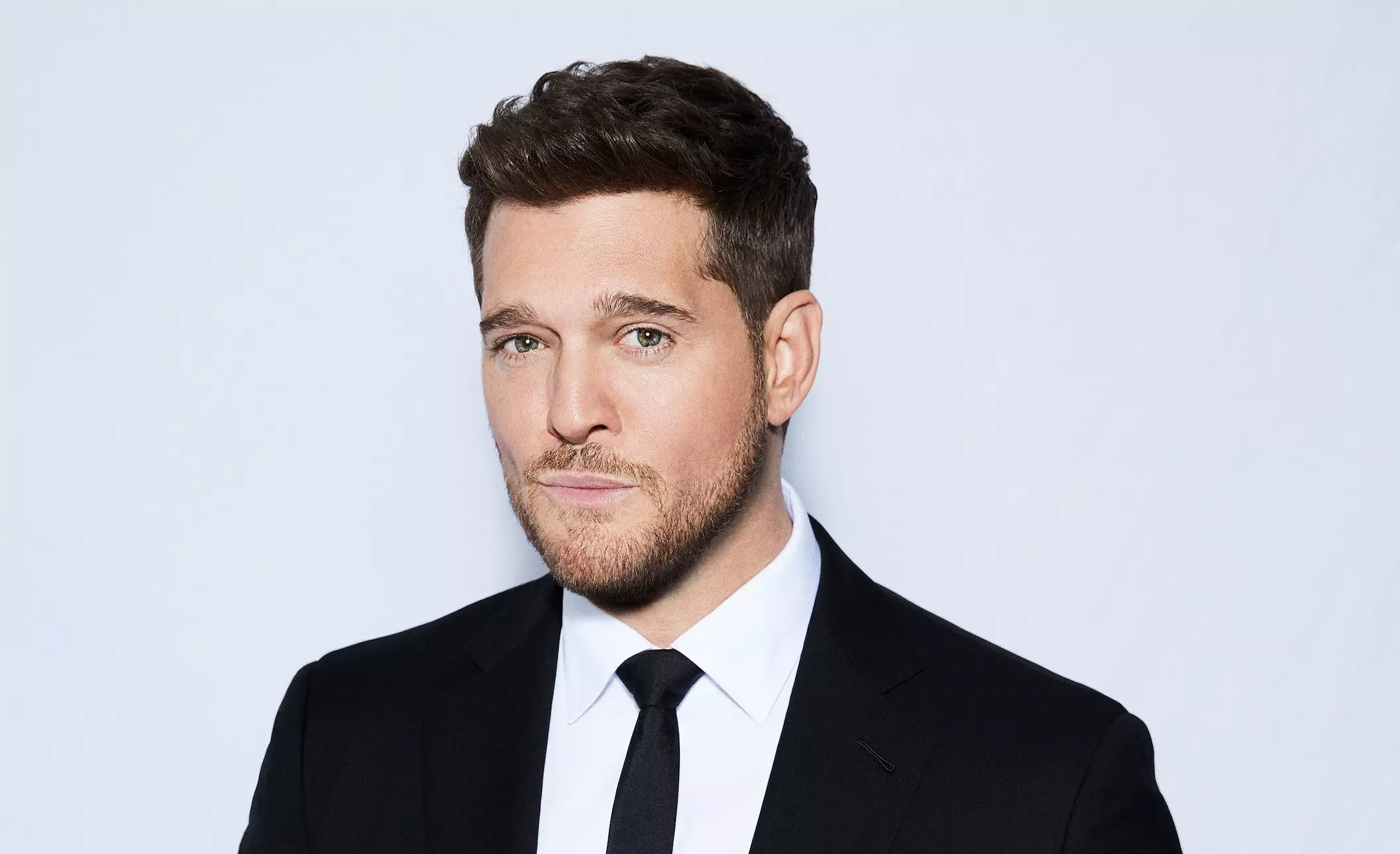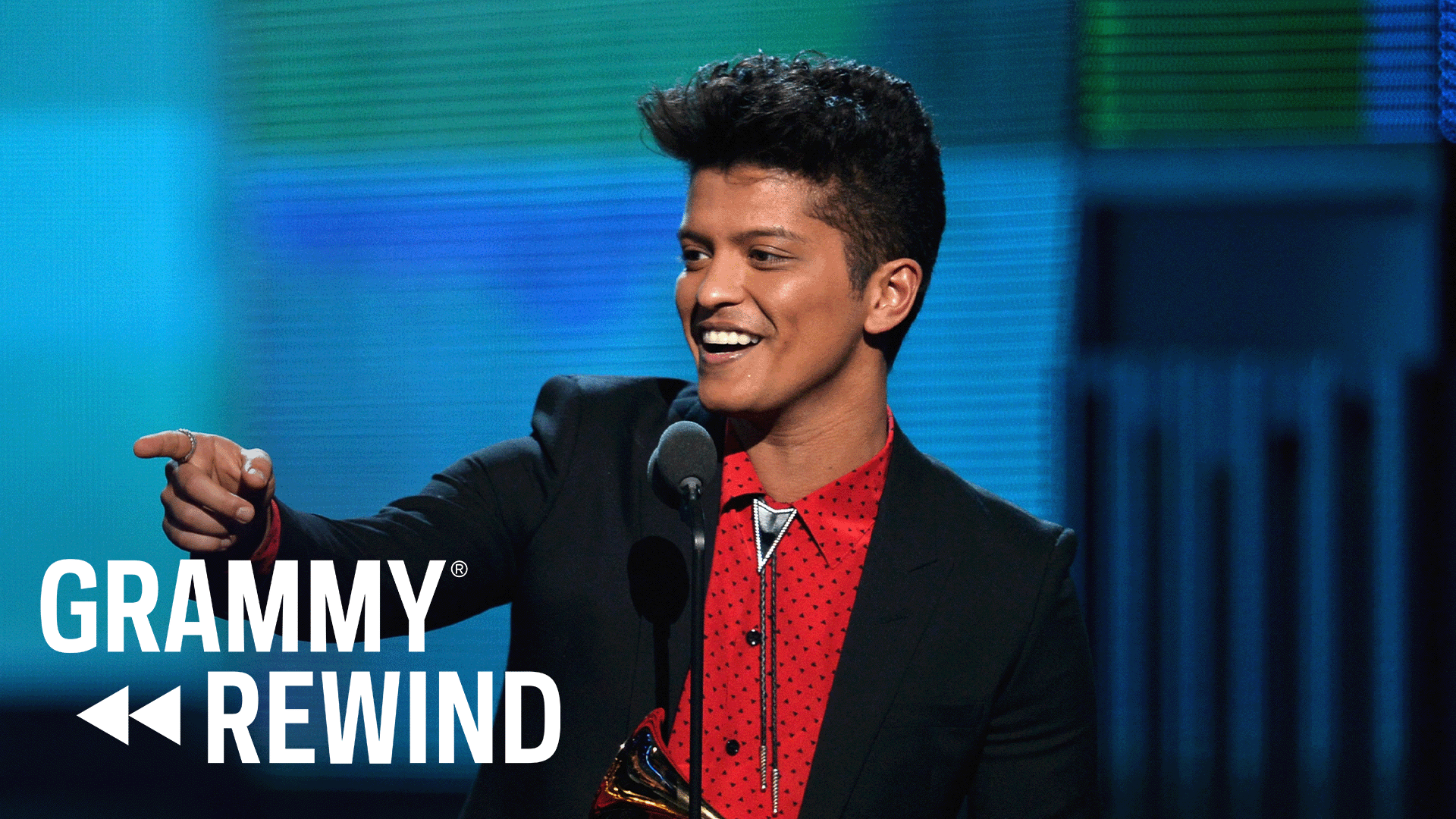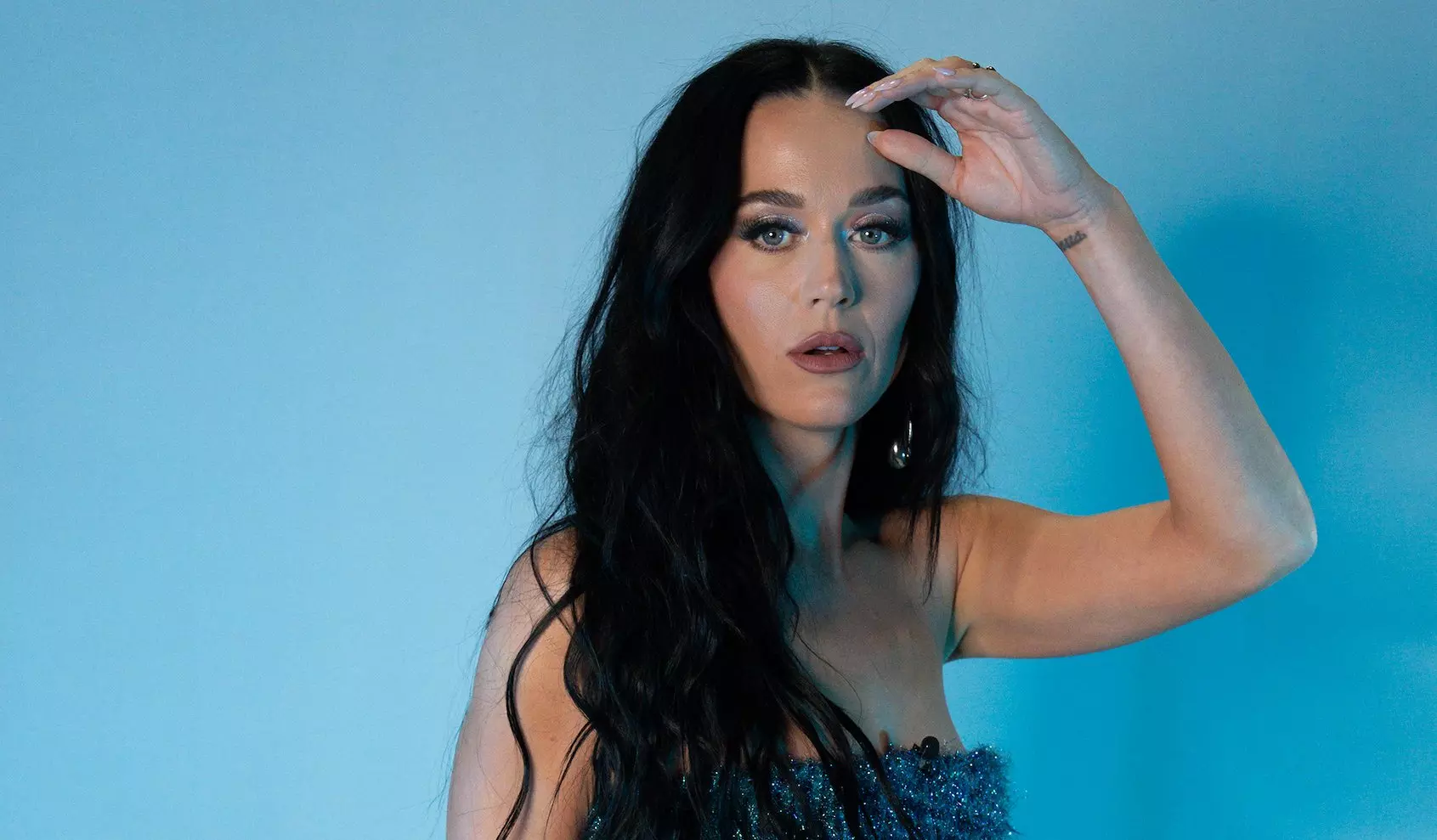Photo: Jana Schuessler

interview
On 'Paragon,' Steve Aoki Keeps Pushing: "This Is By Far The Most Innovative Dance Album I've Ever Done"
From techno to electro, 'Paragon' runs the gamut of dance sounds.Out June 28, the LP is decisively for the dance floor and reflects "a newer sound of Steve Aoki."
The title of his ninth studio album is an apt description of Steve Aoki himself.
The cake-throwing DJ/producer — best known commercially for his 2012 remix of Kid Cudi, MGMT, and Ratatat’s "Pursuit Of Happiness" — can very well be called a paragon of longevity in dance and electronic music. And like his stature as one of the world’s highest-paid DJs (Forbes regularly cites him on its annual list), this status is hard-won.
"[The dance music industry] is…not forgiving," he tells GRAMMY.com on a Zoom call from his home in Las Vegas. He appears in quintessential Aoki fashion: shirtless, his long, dark hair cascading down his shoulders. "Yes, I have a safety level where I can continue to play shows based on old tracks, but that doesn't last very long. You have to constantly stay ahead."
Akin to HiRO — the protagonist of the HiROQUEST graphic novel series that he created to pair with his last two studio albums, HiROQUEST: Genesis and HiROQUEST 2: Double Helix — Aoki is on a quest of his own. HiRO (a genetically augmented meta-human) is tasked with traveling into the multiverse 400 years into the future to save Earth from an unavoidable disaster. Aoki’s charge — continuous innovation of his craft to sustain his longevity in dance music’s ever-saturated and rapidly-moving market — is no less dire nor significant to the Dim Mak Records founder.
"I've always had this starvation complex where I have to keep doing my s—, or else I'm going to die," he muses casually, phone in hand as he paces around his house, as he’s done since he joined our call. Judging by the deadpan manner in which he delivers this line and the laugh that caps it off, this is not a revelation for Aoki. As the Greek maxim goes, "know thyself." Assuredly, he does, and well enough to know he has to keep doing his thing, hence Paragon.
The 18-track project, out June 28, harkens back to Aoki’s dance floor roots following 2023’s Latin-influenced HiROQUEST 2: Double Helix and 2022’s alternative- and punk-guided HiROQUEST. It teems with high-profile crossover collaborations, like "Heavenly Hell" (Ne-Yo), "Electrowavebaby 2.0" (Kid Cudi), and "Get Lower" (Lil Jon). Most importantly, though, it reflects "a newer sound of Steve Aoki" — a compelling and contemporary means of extending his "safety level" in the dance space.
Ahead of Paragon’s release via his own imprint and an international tour, Steve Aoki spoke with GRAMMY.com about the album’s relationality to his artistic identity and HiROQUEST and why, even after nine albums, he’s still "very excited and very hungry to get back in the studio and continue to write music that matters."
This interview has been condensed and edited for clarity.
Why was now the right time for you to go back to your true dance roots?
An album is always about where I am at that moment. I look at each album in a way where I don't want to think too deeply about it. I want it to be more of a timestamp that, in 10 years’ time, reflects that moment in time for me.
This time, a lot of the collaborations I was doing just fluidly became more of the same synergy. It’s a flow, and Paragon is also directly reflective of the kind of music I'm playing at my shows.
Dance music is certainly on a rise, especially the newer sounds of dance music. Sonically, the climate's changing a lot, which challenges me as a producer who was more dominant in the 2010s. I was putting out a lot of music then, and those songs were more prolific in the electronic dance music community.
Now, I'm challenged to stay ahead of my own production. The DNA of your sound stays with you, but you’ve got to always innovate, and this is by far the most innovative dance album I've ever done.
What, in your opinion, makes 'Paragon' so innovative?
When I go back into Paragon and I listen to each song, it's a newer sound of Steve Aoki; it's very dynamic and diverse. There’s house records, there's techno records, there's different beats-per-minute ranges — it's not just hard-hitting festival records.
I think it's forward-thinking for me as a producer, and I'm already working on the "Part B." I distinctively made it shorter than my previous three albums, which were over 20 songs each. This is more of a traditional album length because I look at it as a two-part story musically.
I have a bigger story that I've been attaching to my albums, like HiROQUEST and HiROQUEST 2. I wrote a book that joins those two albums into a full-length science fiction fantasy anime storyline with art and cards and collectability factor, all that fun stuff outside of music.
Paragon is going to be an Easter egg or precursor to what's to come — the continuation of HiROQUEST. I just wanted to not use the name HiROQUEST because I wanted to do something different.
How does the album’s title fit into this larger narrative?
The Paragon Aura is a huge theme of Book 2 of HiROQUEST — it's what brings HiRO back from the "lost world" where he's been stuck. He essentially dies at the end of Book 1 and gets stuck in this lost world. This aura brings him back.
The HiROQUEST is a quest of 10 rings and HiRO is trying to obtain all 10, so he gets this power that’s going to be discussed in Book 2. In order to forge the 10 rings to this omnipotent god ring, he has to use the Paragon Aura. The Paragon Aura is an extremely powerful tool and it's a big theme of the second book.
You’re certainly a paragon of longevity in the dance space, which is rare. How have you maintained such an enduring and continuously expanding presence?
The hunger needs to be there. It doesn't matter how successful you might be to the world. Yes, I have a safety level where I can continue to play shows based on old tracks, but that doesn't last very long. You have to constantly stay ahead.
I think dance music is a bit different from rock or other genres where you can tour off your old catalog. Blink-182 never has to make another new song if they don't want to; they're going to sell out stadiums based on their catalog. Radiohead, Coldplay, they never have to make another new song — they're going to sell out.
There's certain artists in the dance world that are veterans in the space. They’re household names. Like Tiësto or David Guetta…they don't have to release any more music, but they do. When they drop new music, it's still consistently part of culture, which is so exciting. I think that's exciting about the dance world; we still have a strong fingerprint.
Do you count yourself among the veteran dance acts who don’t have to release more music if they don’t want to?
There are definitely people who might think I'm in this category, but I don't personally think about myself like that. Not doing so keeps me fighting for it. I'm still very excited and very hungry to get back in the studio and continue to write music that matters.
The baseline has to be that you're giving all of yourself to this. I still remember touring in a band with four sweaty dudes, showering once a week, and staying at people's houses. Not once in those 14 tours did we ever stay in a hotel. All the money went to gas and feeding ourselves.
We’d be broke by the end of the tour, and I’d be ready for the next one. I still remember the feeling of okay, we’re broke, we’re stinky, and we’re back in our town. Now we gotta write more music to get back on the road again, and I loved it. I did like 14 full tours by the time I was 21. It's a lot more luxurious these days but doing what you love has to be the foundation or else you can't survive the hard.
I've been doing my record label, Dim Mak, for almost 30 years now. The people who have worked for Dim Mak…it's a lifestyle. Yes, they're working to get a paycheck, but they're working first and foremost because they believe in the culture. You have to be down with the culture first and the paycheck second.
What can fellow DJ/producers take from the example you’ve set?
I think the most important thing is to never stop making music and leveling up your shows because those are the two most important things as an artist in any space. The live experience is really important. Your music is number one, though, because if your music's not good, no one's even going to go to your live show. You need to build your sound to a point where people know your music as you, and then you better show up and make your show really good. And not even just good — you’ve got to make it your own show.
A Steve Aoki show is a unique show, and in some cases, it's outperforming my music. People will talk more about my cakes than my new album. I'll take it though, because I just want people to have a great experience.
There are a lot of artists who find their sound, develop it, people latch onto them, and then they just fizzle out for whatever reason. When it fizzles out, that's when the real test comes and it’s to go back to it. If you really care about the long game, you’ve got to keep putting more cakes in the oven.
Nine albums is a tall tally, especially for the dance genre, where the album is not the dominant format. Why is it important to you to continue making albums despite this dynamic?
I've always been an album guy because I was a band guy. When you're in a band, the most important thing is to make an album, not a song. You have to make a collection of music that defines you.
When I was in bands, I listened to albums, and I’d listen to every single song. I know people don't do that anymore, but I still like to follow that, I can't help it. I collect vinyl; I do certain things in the old-school sense that you can't kick out of me.
Read more: 8 Times Dance Stars Channeled Their Inner Punk Kid, From Deadmau5 & Gerard Way To Rezz & Silverstein
I know people aren't listening to the full album. I know they're listening to the song that's probably the main song of the whole album. And even if one one-hundredth of my fans listen to the full album, I don't actually care. I'm still going to make the album. It goes back to the most important thing: I'm doing it for myself first.
I love telling a story. All the attention to detail and my intention to create this moment in time means so much to me. I know one one-hundredth of the people are going to be there for it, and I'm totally fine with that. I've grown a community of fans because I care so much about the detail; I go so deep into the story. I do it for them too. And the people who are in and out and come just for the quick hit, that's fine. They're absolutely welcome and invited to be part of it.
That one one-hundredth appreciates the concept-driven approach to album-making, especially because this genre isn’t exactly known for that compared to other genres.
Yeah, and I think a lot of stuff that I'm doing, especially with HiROQUEST, has not been done before, like bringing in anime culture, card culture, comic books, and manga. No one's doing that in [dance music]. The Weeknd did a comic book and so did Kid Cudi. I'm following the same practice of combining these worlds.
And I went deep in HiROQUEST: Book 1. It's 50,000 words. I spent like 16 months writing this book; it’s 250 pages. That’s a big ordeal, but what's great is we’ve already sold out two printings. We're already in our third printing now, which is incredible for a story that had never been heard before.
I love my fans for that. It allows me to have the courage to keep going. To step out like this is a lot of work and a lot of time, and you don't want to fall on deaf eyes and ears. I'm already writing Book 2.
Tove Lo & SG Lewis Crafted Sweaty New EP 'HEAT' In Celebration Of Their Queer Fans

Photo: James Minchin III
list
New Music Friday: Listen To New Songs By Linkin Park, Halsey, Megan Thee Stallion & RM And More
The start of September is full of musical surprises, long-awaited albums and star-studded collabs. Check out 11 dynamic new releases here.
August has given way to September, and while the leaves may not be ready to start changing quite yet, the fall release schedule promises to be filled with music as colorful and diverse as the soon-to-be autumn leaves.
New albums released this week include Paris Hilton's long-awaited sophomore effort Infinite Icon, Danielle Bradbery's self-titled Danielle and Jackson Dean's On The Back Of My Dreams, while blink-182 and Camila Cabello drop deluxe editions of their latest LPs, ONE MORE TIME…PART-2 and C,XOXO - Magic City Edition, respectively.
Meanwhile, on the new song front, Post Malone teams up with Dwight Yoakam for their first official recording together, "I Don't Know How To Say Goodbye (Bang Bang Boom Boom)"; Tanner Adell unveils "Silverado"; Toosii gets an all-star assist from Gunna on "Champs Eleysee"; and Above & Beyond reunite with Richard Bedford for "Heart of Stone."
Below, GRAMMY.com details 11 other new releases worth parsing through this weekend, including the surprise reforming of Linkin Park, a full-length 10 years in the making for LL Cool J and a pulsating collaboration between Alesso and David Guetta that will give you one last reason to hit the dance floor before summer is officially through.
Linkin Park — "The Emptiness Machine"
Seven years after the devastating passing of Chester Bennington, his bandmates announced on Thursday (Sept. 6) that Linkin Park would be making music again — complete with new co-vocalist Emily Armstrong of Dead Sara and drummer Colin Brittain.
"The Emptiness Machine" serves as not only the two-time GRAMMY winners' first original release since 2017, but it's also the lead single of the band's forthcoming eighth album, FROM ZERO, which is slated to drop Nov. 15 via Warner Records. Armstrong's voice adds a dynamic new counterpoint to Mike Shinoda's vocals as she snarls, "Going around like a revolver/ It's been decided how we lose/ 'Cause there's a fire under the altar/ I keep lying to" before launching into the hard-charging chorus.
LL Cool J — 'The FORCE'
It's been more than a decade since LL Cool J last graced the world with a full-length studio set, and he's assembled quite the impressive entourage to help usher in his latest body of work, The FORCE.
In addition to previously released singles with Rick Ross and Fat Joe ("Saturday Night Special") and Saweetie ("Proclivities"), the five-time GRAMMY Awards host's 14th album features a star-studded track list that includes everyone from Snoop Dogg (opener "Spirit of Cyrus") and Eminem ("Murdergram Deux") to Nas ("Praise Him"), Busta Rhymes ("Huey in Da Chair") and trio of hip-hop upstarts Mad Squablz, J-S.A.N.D. and Don Pablito ("The Vow").
Halsey — "Ego"
"I really thought this album might be the last one I ever made," Halsey confessed just last week in the trailer for her studio set The Great Impersonator. And the mood on "Ego" — which the singer released 24 hours after officially announcing the album's Oct. 25 release date — is just as dire.
On the track, the nonbinary pop savant leans into both '90s alt-rock and 2000s emo as she wails, "I think that I should try to kill my ego/ 'Cause if I don't, my ego might kill me/ I'm all grown up and somehow lately/ I'm actin' like a f—in' baby/ I'm really not as happy as I seem." "Ego" is the latest taste of the decade-jumping concept album, following Britney Spears homage "Lucky" and the hard-rocking "Lonely Is the Muse."
George Strait — 'Cowboys and Dreamers'
George Strait's 31st studio album — and first since 2019's Honky Tonk Time Machine — is a testament to life and loss.
Dedicated to the memory of his longtime manager Erv Woolsey, fiddle player Gene Elders and road manager Tom Foote, all of whom passed away within a few weeks of each other in the spring of 2024. The LP features the last studio recordings by Elders, who played fiddle on four of its tracks.
The heartfelt studio set was preceded by singles "MIA Down in MIA," "The Little Things" and "Three Drinks Behind," and includes three songs Strait co-wrote with his son, Bubba. Perhaps the album's most poignant track is its closer, "The Journey of Your Life," which is full of life lessons and a fitting message in the chorus: "You'll need a angel flyin' by your side/ On thе journey of your life."
Queen Naija — "Good Girls Finish Last"
Queen Naija drapes her silken voice in a dreamy soundscape reminiscent of classic R&B on latest single "Good Girls Finish Last."
Over gorgeous strings and vintage production, the Capitol Records signee laments, "No matter what I change/ It's clear I can never change your mind and/ I thought it'd get better with the time, but/ It's finally time to say goodbye" as she walks away from a relationship that's not working despite her best efforts.
The single marks the one-time "American Idol" competitor's first release since her 2023 YoungBoy Never Broke Again collaboration, "No Fake Love," and should certainly whet fans' appetites as they wait for a full-length follow-up to her 2020 debut album, Misunderstood.
Megan Thee Stallion & RM — "Neva Play"
Just days after first teasing another collab with RM, Megan Thee Stallion has reunited with the BTS star for "Neva Play," a chant-ready back-and forth that finds both rappers racking up points in a digital video game and anime-inspired soundscape in the accompanying music video.
"One, two, three, fo'/ Five, six, seven, eight/ Let 'em know we on the way/ Countin' zeros every day/ You know dat we neva play," Meg brags before the K-pop idol steps in to deliver icy, final boss-level flow with his verse: "You know that we neva play/ Yeah, we gon' forever slay/ Me and Megan on the way/ For Asia, man, we paved the way." Consider it a T.K.O. — and for a 2x combo this Friday, check out "BBA," the Queen of the Hotties' brand new song with Paris Hilton on Infinite Icon, too.
Read More: How Paris Hilton Reclaimed Her Narrative With 'Infinite Icon'
Alesso, David Guetta & Madison Love — "Never Going Home Tonight"
Earlier this summer, Alesso and David Guetta each remixed Shaboozey's breakout hit "A Bar Song (Tipsy)" before it began its ongoing reign atop the Billboard Hot 100, and now the two DJs have joined forces on new single "Never Going Home Tonight."
The emotive track features vocals from Madison Love, who recently helped Kesha pen her comeback single "Joyride" and declares early in the first verse, "DJ, play that sad song one more time." From there, the two EDM titans build tension over an undulating piano line before the beat drops and whips the chorus into a whirlwind of hypnotic ecstasy — complete with Love's repetitive refrain of the song's escapist title.
Rex Orange County — 'The Alexander Technique'
The Alexander Technique , Rex Orange County's fifth studio album, finds the artist born Alexander O'Connor stripped down to his most vulnerable parts. From the very first line of lead single (and album opener) "Alexander," the English troubadour lays bare his innermost thoughts on jealousy, chronic pain, wanderlust, the unrelenting passage of time and much more over understated, introspective soundscapes filled with gentle guitar, plaintive keys and — on the track list's lone collaboration — chill-inducing harmonies with James Blake.
Rex Orange County will bring The Alexander Technique to life in major U.S. cities and London, FINALLY: A Theatre Tour by Rex OrangeCounty. The trek will kick off with two shows in Chicago on Oct. 4 and 5.
Ashe — 'Willson'
With the release of her new album Willson, Ashe completes the personal triptych she began with 2021's Ashlyn and continued on 2022's Rae — with the trio of titles making up the full name behind her stage persona. (Ashlyn Rae Willson…get it?)
However, Willson also marks the beginning of an exciting new chapter in the indie pop darling's career as her first full-length as an entirely independent artist. It's also the first for Ashe to appear entirely on her own across its 12 gauzy, confessional tracks, with past collaborators like FINNEAS, Niall Horan and Diane Keaton nowhere to be found.
G Herbo — 'Big Swerv'
G Herbo's latest mixtape, Big Swerv, may take its title from one of his many alter egos, but the rapper born Herbert Randall Wright III is exploring all kinds of fresh new ground on the 14-track project.
Rather than revisit some of the darker, more tumultuous themes on past albums like 2020's PTSD, 2021's 25 and 2022's Survivor's Remorse, the Chicago MC shifts into party mode with help from collaborators like 21 Savage ("In the A"), Sexyy Red ("Ten") and Chief Keef ("No Pics").
Joss Stone — "Loving You" featuring Shaggy
Fresh off celebrating the 20th anniversary of her 2003 debut album The Soul Sessions, Joss Stone reinvents her latest single "Loving You" with a little help from Shaggy.
On the remix, the two GRAMMY winners ride a sultry groove as the slow jam unfolds into a heartfelt letter full of unrequited love. "Won't you come back to me?/ I'm the girl of your dreams/ I sure try to be/ 'Cause I be loving you," Stone yearns in between Shaggy's spoken word adlibs before tossing the mic to the reggae artist for his own laidback verse.
Latest News & Exclusive Videos
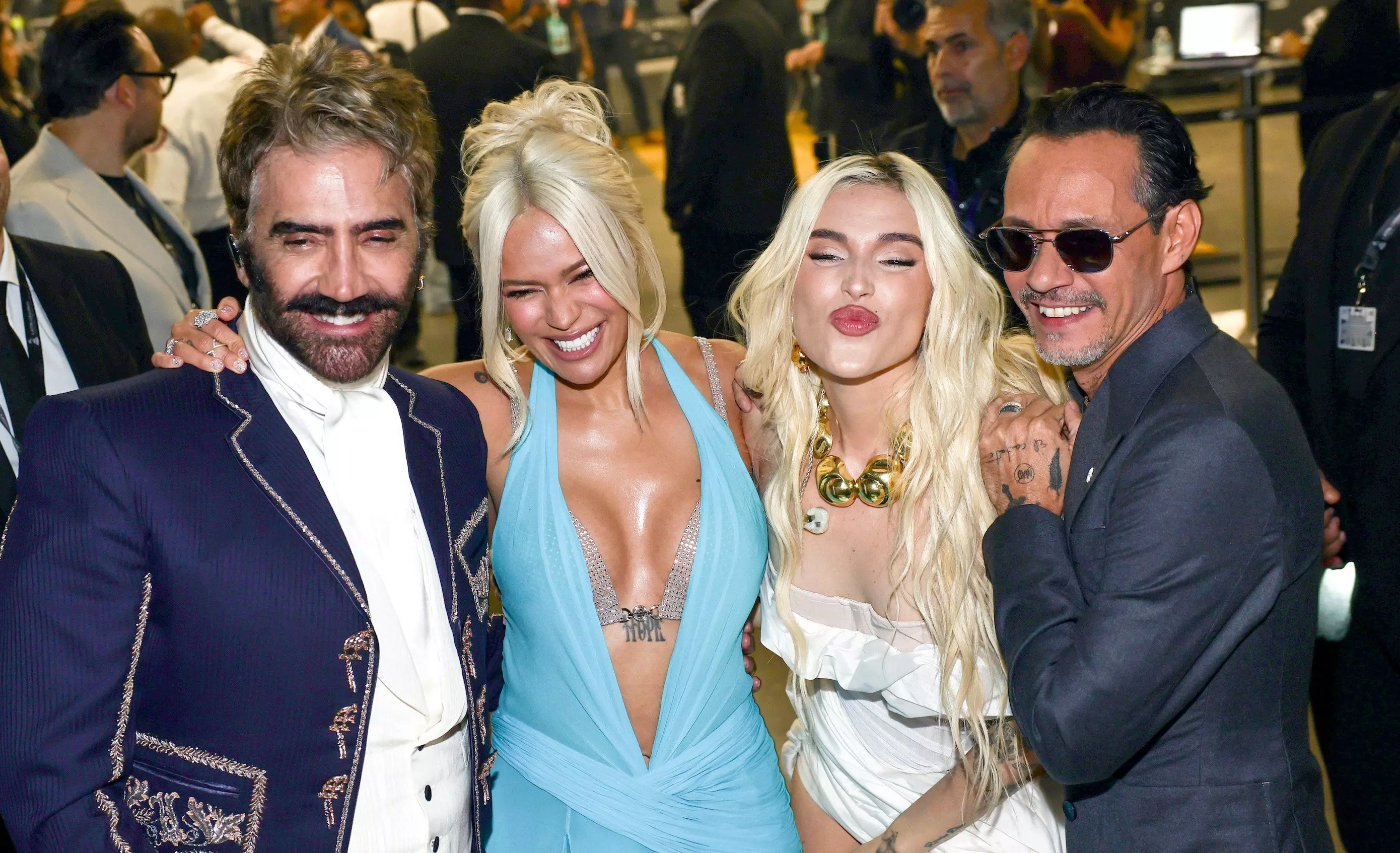
10 Meaningful Moments From The 2024 Latin GRAMMYs: Karol G's Heartfelt Speech, Tributes To Late Legends & More
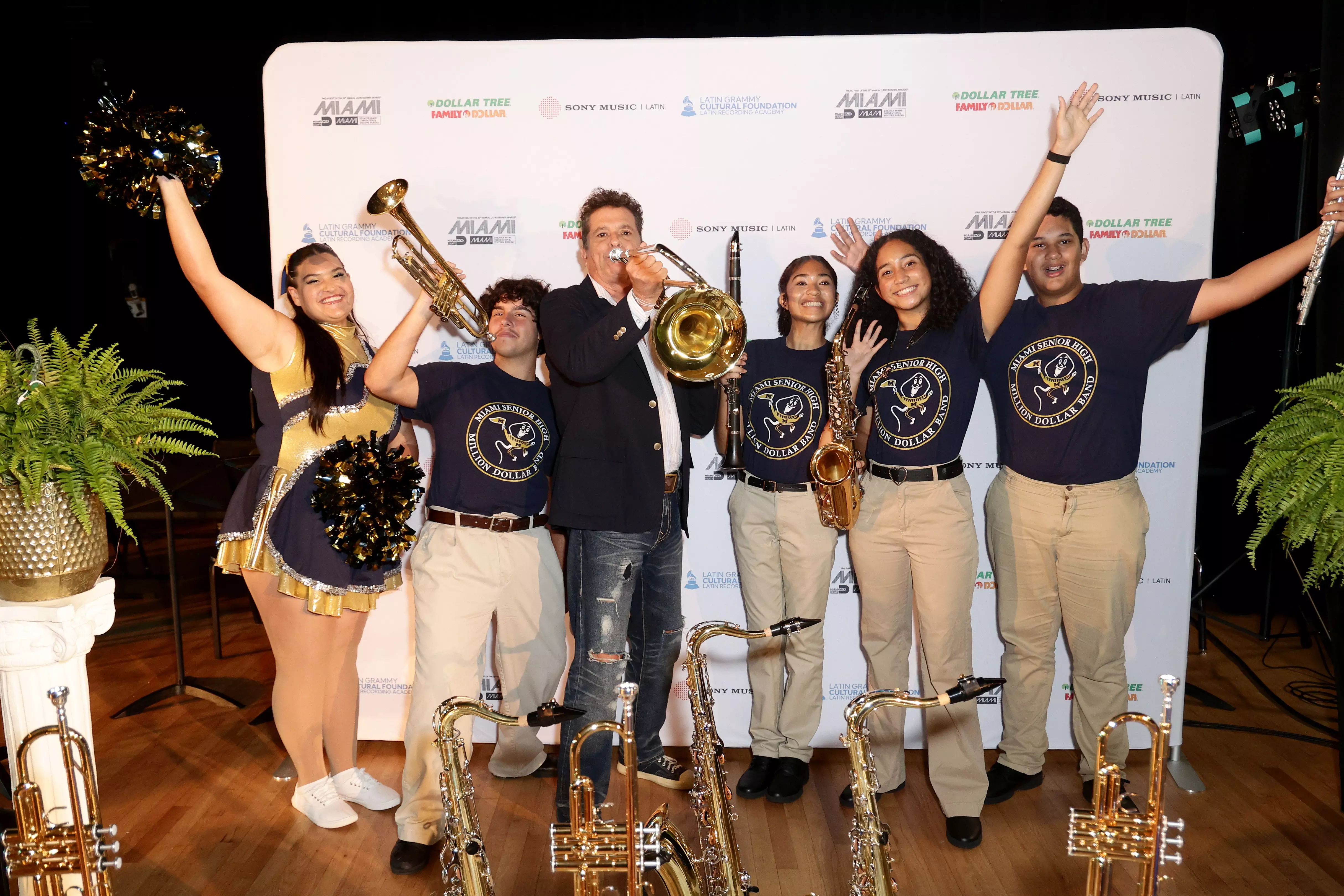
Behind The Scenes At Latin GRAMMY Week 2024: Inside VIP Celebrations & More
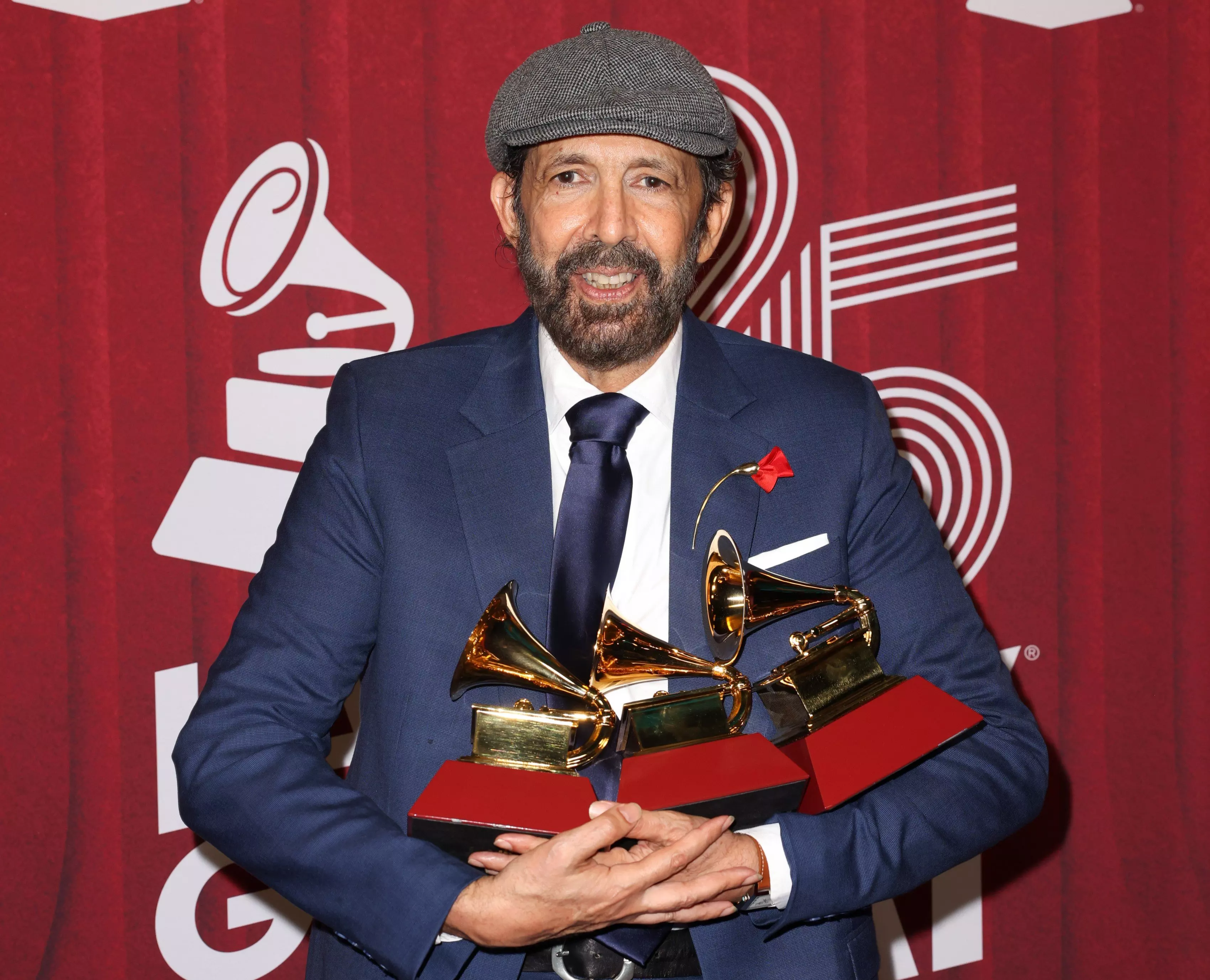
Juan Luis Guerra Sweeps The 2024 Latin GRAMMYs With 'Radio Güira'

How Gwen Stefani's New Album 'Bouquet' Celebrates A Career Built On Love In All Its Forms

Watch: Luis Fonsi Performs "Despacito" & Two More Of His Classics At The 2024 Latin GRAMMYs
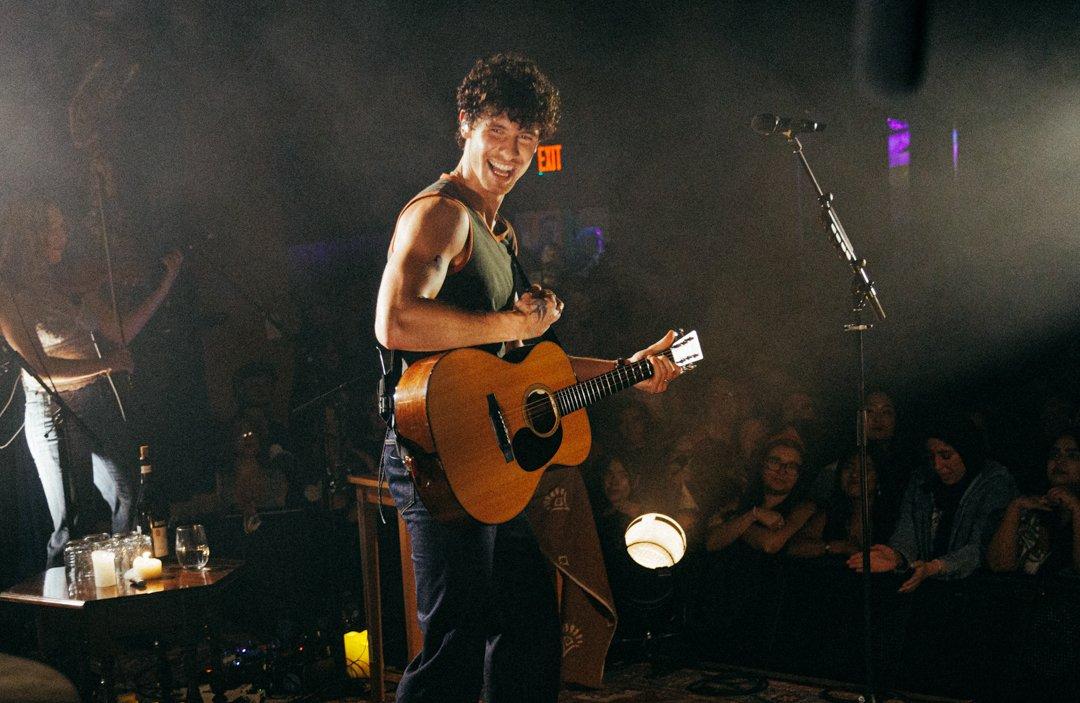
Photo: Thomas Falcone
list
New Music Friday: Listen To New Songs From ATEEZ & G-Eazy, Shawn Mendes, Latto, & More
Check out some of the new music that dropped on Aug. 9, from Elvis' hometown recordings to Katy Perry's latest bop.
As August temperatures remain hot, so does the new music. With fresh tracks spanning all genres from dance to rap, there's plenty to explore this New Music Friday.
Check out albums like NIKI's Buzz, Logic's Ultra 85, and Little Big Town's Greatest Hits, as well as first tastes of forthcoming projects from Kelsea Ballerini, Katy Perry and Leon Bridges. Plus, there's plenty more new songs from the likes of The Kid LAROI and beabadoobee, as well as thrilling collabs from ATEEZ and G-Eazy, and J Balvin and Feid.
No matter what genre you gravitate towards, there's something new to discover. Be sure to check out these 10 musical offerings before you kick off your weekend.
Shawn Mendes — "Why, Why, Why" & "Isn't That Enough"
Just hours before New Music Friday hit, Shawn Mendes celebrated his 26th birthday with a gift to his fans: not one, but two new songs.
The first taste of his upcoming fifth studio album, Shawn, the two tracks — "Why, Why, Why" and "Isn't That Enough" — present a folkier side of Mendes' musicality, leaning into the acoustic sound of his early music but with an indie flair. Mendes also released the official video for "Why Why Why," which sees shots of the singer playing his guitar in nature transposed with footage of him performing on stage.
In celebration of the release, Mendes played an intimate show at Bearsville Theater in Woodstock, New York, performing Shawn in its entirety two full months before its Oct. 18 arrival. He'll play five more full-album shows: London, U.K. on Aug. 13, Nashville, Tenn. on Oct. 14, Brooklyn, New York on Oct. 18, Los Angeles on Oct. 22, and Seattle on Oct. 24.
Clean Bandit, Anne-Marie, and David Guetta — "Cry Baby"
After scoring hits with Clean Bandit and David Guetta respectively, Anne-Marie brings them both together for another vibrant, upbeat electronic anthem. "Cry Baby" takes inspiration from early 2010s dance music, reminiscent of the era when the genre dominated the airwaves.
Featuring a haunting whistle hook and Anne-Marie's powerful vocals layered over pulsing instrumentals from the dance giants, "Cry Baby" is a powerhouse collaboration showcasing some of the best talents in electronic music.
Polo G — 'Hood Poet'
Three years after 2021's Hall of Fame, Polo G is back with his fourth studio album, Hood Poet. The album was shelved for over a year due to outstanding circumstances, but it's finally here, and rap fans couldn't be more hyped.
The four singles that teased the project include "Barely Holdin' On," "Distraction," "Angels In The Sky," and "We Uh Shoot," featuring Lil Durk. These tracks feature a range of instrumental backgrounds, from soft piano layers to thumping beats, all showcasing Polo G's powerful and passionate vocal lines.
Although the wait was long it was no doubt worth it, as the tracks on Hood Poet represent some of Polo G's finest work, from the refined production to his evocative, creative storytelling.
Katy Perry — "Lifetimes"
Continuing to tease songs from her forthcoming seventh studio album, 143, Katy Perry delivers her latest dance-pop track, "Lifetimes." The song is a lively, upbeat anthem representing unconditional love.
On Instagram, Perry posted a photo with her partner, Orlando Bloom, using a filter that aged her 50 years, with the track playing in the background. However, Perry recently revealed to The Sun that the song is actually about her 3-year-old daughter, Daisy – a sweet ode to the unmatched feeling of maternal love.
"Every night, before we go to sleep, I say, 'I love you', and then I ask, 'Will you find me in every lifetime?' and she says, 'Yes'," Perry revealed.
ATEEZ and G-Eazy — "WORK Pt. 4"
Two months after ATEEZ released their 10th mini album, GOLDEN HOUR: Part 1, the K-pop group is still breathing new life into the project's single "WORK" — this time, with the help of G-Eazy. Titled "WORK Pt. 4," the song's latest version features some steamy lines from G-Eazy on the second verse, bringing a risqué edge to the punchy rap-pop track.
"WORK Pt. 4" follows two electronic reimaginings of "WORK," as "Pt. 2" featured a remix by Dutch producer Don Diablo and "Pt. 3" was reworked by ATEEZ's production team, Eden-ary. While "WORK Pt. 4" is the closest to the bumping original, a press release teased that the newest version "reflects the ever-challenging spirit of ATEEZ."
Elvis Presley — 'MEMPHIS'
Following the 70th anniversary of Elvis Presley's debut single, "That's All Right," RCA Records and Legacy Recordings have released a sprawling 111-track box set, MEMPHIS. The career-spanning collection features recordings from his earliest sessions at Sun Studios through his final works from the Jungle Room in Presley's Graceland home.
Aside from the Sun Studios recordings, all of the tracks were newly mixed by four-time GRAMMY winner Matt Ross-Spang, who removed all of the overdubs to highlight Presley's original vocal recordings. MEMPHIS offers a new perspective on the King of Rock and Roll, providing a clear listening experience that further immortalizes his one-of-a-kind vocal prowess.
King Gizzard & The Lizard Wizard — 'Flight b741'
With their 26th studio album, Flight b741, King Gizzard & The Lizard Wizard dive into a classic blues-rock sound, a departure from their usual psychedelic, experimental garage rock style.
The album features the Australian band's admirable response to current world issues, such as climate change, set against music that embraces the spirit of traditional rock. The concept focuses on how the music translates during their live performances.
Just after the album's release, the band will embark on a massive world tour, beginning Aug. 15 in Washington, D.C., and concluding at the end of November in Miami. The tour includes four shows billed as "marathon sets," where King Gizzard & The Lizard Wizard will perform for three hours each night.
Latto — 'Sugar Honey Iced Tea'
GRAMMY-nominated rapper Latto pays homage to her Southern hip-hop roots on her fittingly third studio album, Sugar Honey Iced Tea. The LP boasts an impressive list of collaborators, including Playboi Carti, Megan Thee Stallion, Ciara, and Cardi B.
Latto told Billboard that after a decade in the rap game, she feels she's already proven herself. Now, she is returning to her roots and making music that speaks to her, regardless of whether she receives additional flowers for it or not.
"I feel like what I'm doing has not been done before, so let's start there. [Aesthetically], I've been pulling from Mariah Carey, Beyoncé, and Lil' Kim. [Musically], I've been pulling from Kelis, but obviously with a Southern hip-hop twist," Latto says. "They have very feminine energy, but masculine in the sense of confidence."
DannyLux — "Soltera"
Embracing both sides of his Mexican and American cultural identity, 20-year-old DannyLux blends elements of Western house music with his tender Spanish lyricism on "Soltera."
Produced by Mexican-American producer 8onthebeat, the track is a fast-paced earworm perfect for hitting the dance floor. In the music video, DannyLux dances around different rooms of a house and singing along — setting the example for what listeners are bound to do once they press play.
LA LOM — 'The Los Angeles League of Musicians'
If you haven't heard of LA LOM yet, prepare for that to change. The Los Angeles-native trio is on the rise, earning an opening slot for Vampire Weekend earlier this year; now, they are unveil their debut album, The Los Angeles League of Musicians.
The project is a guitar-focused masterpiece, drawing inspiration from traditional Peruvian cumbia music. Featuring a diverse range of tracks, listening to The Los Angeles League of Musicians offers a unique sonic experience. The album takes listeners on a journey from laid-back, lo-fi tunes to uptempo dance tracks, perfect for a get-together with loved ones or a night out on the dance floor at your favorite hole-in-the-wall venue — a perfect weekend soundtrack.
The Latest Pop Music News & Releases
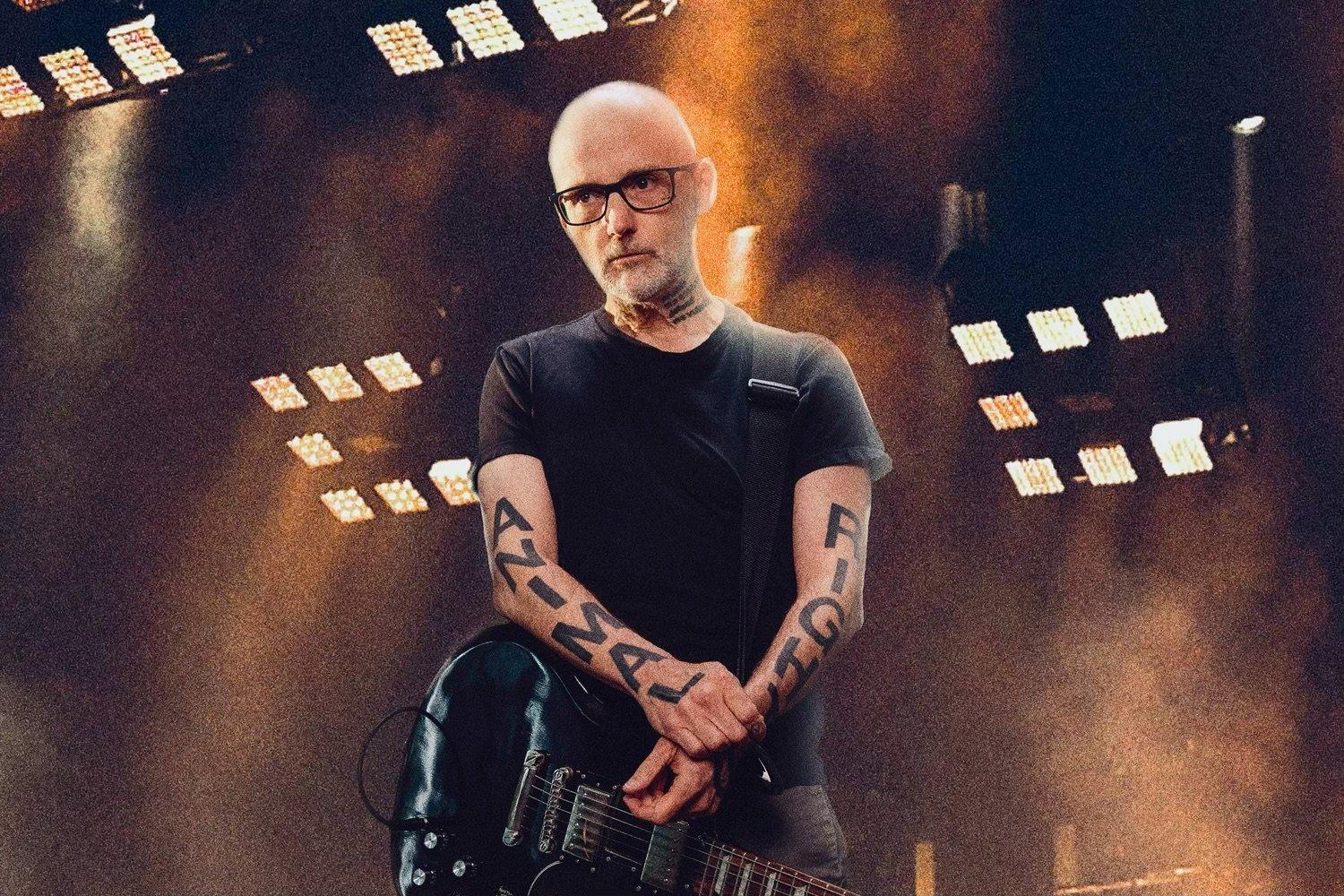
Photo: Mike Formanski
interview
"Let Yourself Be Idiosyncratic": Moby Talks New Album 'Always Centered At Night' & 25 Years Of 'Play'
"We're not writing for a pop audience, we don't need to dumb it down," Moby says of creating his new record. In an interview, the multiple-GRAMMY nominee reflects on his latest album and how it contrasts with his legendary release from 1999.
Moby’s past and present are converging in a serendipitous way. The multiple-GRAMMY nominee is celebrating the 25th anniversary of his seminal work, Play, the best-selling electronic dance music album of all time, and the release of his latest album, always centered at night.
Where Play was a solitary creation experience for Moby, always centered at night is wholly collaborative. Recognizable names on the album are Lady Blackbird on the blues-drenched "dark days" and serpentwithfeet on the emotive "on air." But always centered at night’s features are mainly lesser-known artists, such as the late Benjamin Zephaniah on the liquid jungle sounds of "where is your pride?" and Choklate on the slow grooves of "sweet moon."
Moby’s music proves to have staying power: His early ‘90s dance hits "Go" and "Next is the E" still rip up dancefloors; the songs on Play are met with instant emotional reactions from millennials who heard them growing up. Moby is even experiencing a resurgence of sorts with Gen Z. In 2023, Australian drum ‘n’ bass DJ/producer Luude and UK vocalist Issey Cross reimagined Moby’s classic "Porcelain" into "Oh My." Earlier this year, Moby released "You and Me" with Italian DJ/producer Anfisa Letyago.
Music is just one of Moby’s many creative ventures. He wrote and directed Punk Rock Vegan Movie as well as writing and starring in his homemade documentary, Moby Doc. The two films are produced by his production company, Little Walnut, which also makes music videos, shorts and the podcast "Moby Pod." Moby and co-host Lindsay Hicks have an eclectic array of guests, from actor Joe Manganiello to Ed Begley, Jr., Steve-O and Hunter Biden. The podcast interviews have led to "some of the most meaningful interpersonal experiences," Moby tells GRAMMY.com.
A upcoming episode of "Moby Pod" dedicated to Play was taped live over two evenings at Los Angeles’ Masonic Lodge at Hollywood Forever Cemetery. The episode focuses on Moby recounting his singular experiences around the unexpected success of that album — particularly considering the abject failure of his previous album, Animal Rights. The narrative was broken up by acoustic performances of songs from Play, as well as material from Always Centered at Night (which arrives June 14) with special guest Lady Blackbird. Prior to the taping, Moby spoke to GRAMMY.com about both albums.
'Always centered at night' started as a label imprint then became the title of your latest album. How did that happen?
I realized pretty quickly that I just wanted to make music and not necessarily worry about being a label boss. Why make more busy work for myself?
The first few songs were this pandemic process of going to SoundCloud, Spotify, YouTube and asking people for recommendations to find voices that I wasn’t familiar with, and then figuring out how to get in touch with them. The vast majority of the time, they would take the music I sent them and write something phenomenal.
That's the most interesting part of working with singers you've never met: You don't know what you're going to get. My only guidance was: Let yourself be creative, let yourself be idiosyncratic, let the lyrics be poetic. We're not writing for a pop audience, we don't need to dumb it down. Although, apparently Lady Blackbird is one of Taylor Swift's favorite singers.
Guiding the collaborators away from pop music is an unusual directive, although perhaps not for you?
What is both sad and interesting is pop has come to dominate the musical landscape to such an extent that it seems a lot of musicians don't know they're allowed to do anything else. Some younger people have grown up with nothing but pop music. Danaé Wellington, who sings "Wild Flame," her first pass of lyrics were pop. I went back to her and said, "Please be yourself, be poetic." And she said, "Well, that’s interesting because I’m the poet laureate of Manchester." So getting her to disregard pop lyrics and write something much more personal and idiosyncratic was actually easy and really special.
You certainly weren’t going in the pop direction when making 'Play,' but it ended up being an extremely popular album. Did you have a feeling it was going to blow up the way it did?
I have a funny story. I had a date in January 1999 in New York. We went out drinking and I had just gotten back the mastered version of Play. We're back at my apartment, and before our date became "grown up," we listened to the record from start to finish. She actually liked it. And I thought, Huh, that's interesting. I didn't think anyone was going to like this record.
You didn’t feel anything different during the making of 'Play?'
I knew to the core of my being that Play was going to be a complete, abject failure. There was no doubt in my mind whatsoever. It was going to be my last record and it was going to fail. That was the time of people going into studios and spending half a million dollars. It was Backstreet Boys and Limp Bizkit and NSYNC; big major label records that were flawlessly produced. Play was made literally in my bedroom.
I slept under the stairs like Harry Potter in my loft on Mott Street. I had one bedroom and that's where I made the record on the cheapest of cheap equipment held up literally on milk crates. Two of the songs were recorded to cassette, that's how cheap the record was. It was this weird record made by a has-been, a footnote from the early rave days. There was no world where I thought it was going to be even slightly successful. Daniel Miller from Mute said — and I remember this very clearly — "I think this record might sell over 50,000 copies." And I said, "That’s kind of you to say but let's admit that this is going to be a failure. Thank you for releasing my last record."
Was your approach in making 'Play' different from other albums?
The record I had made before Play, Animal Rights, was this weird, noisy metal punk industrial record that almost everybody hated. I remember this moment so vividly: I was playing Glastonbury in 1998 and it was one of those miserable Glastonbury years. When it's good, it's paradise; it's really special. But the first time I played, it was disgusting, truly. A foot and a half of mud everywhere, incessant rain and cold. I was telling my manager that I wanted to make another punk rock metal record. And he said the most gentle thing, "I know you enjoy making punk rock and metal. People really enjoy when you make electronic music."
The way he said it, he wasn't saying, "You would help your career by making electronic music." He simply said, "People enjoy it." If I had been my manager, I would have said, "You're a f—ing idiot. Everyone hated that record. What sort of mental illness and masochism is compelling you to do it again?" Like Freud said, the definition of mental illness is doing the same thing and expecting different results. But his response was very emotional and gentle and sweet, and that got through to me. I had this moment where I realized, I can make music that potentially people will enjoy that will make them happy. Why not pursue that?
That was what made me not spend my time in ‘98 making an album inspired by Sepultura and Pantera and instead make something more melodic and electronic.
After years of swearing off touring, what’s making you hit stages this summer?
I love playing live music. If you asked me to come over and play Neil Young songs in your backyard, I would say yes happily, in a second. But going on tour, the hotels and airports and everything, I really dislike it.
My manager tricked me. He found strategically the only way to get me to go on tour was to give the money to animal rights charities. My philanthropic Achilles heel. The only thing that would get me to go on tour. It's a brief tour of Europe, pretty big venues, which is interesting for an old guy, but when the tour ends, I will have less money than when the tour begins.
Your DJ sets are great fun. Would you consider doing DJ dates locally?
Every now and then I’ll do something. But there’s two problems. As I've become very old and very sober, I go to sleep at 9 p.m. This young guy I was helping who was newly sober, he's a DJ. He was doing a DJ set in L.A. and he said, "You should come down. There's this cool underground scene." I said, "Great! What time are you playing?" And he said "I’m going on at 1 a.m." By that point I've been asleep for almost five hours.
I got invited to a dinner party recently that started at 8 p.m. and I was like, "What are you on? Cocaine in Ibiza? You're having dinner at 8 p.m. What craziness is that? That’s when you're putting on your soft clothes and watching a '30 Rock' rerun before bed. That's not going out time." And the other thing is, unfortunately, like a lot of middle aged or elderly musicians, I have a little bit of tinnitus so I have to be very cautious around loud music.
Are you going to write a third memoir at any point?
Only when I figure out something to write. It's definitely not going to be anecdotes about sobriety because my anecdotes are: woke up at 5 a.m., had a smoothie, read The New York Times, lamented the fact that people are voting for Trump, went for a hike, worked on music, played with Bagel the dog, worked on music some more went to sleep, good night. It would be so repetitive and boring.
It has to be something about lived experience and wisdom. But I don't know if I've necessarily gotten to the point where I have good enough lived experience and wisdom to share with anyone. Maybe if I get to that point, I'll probably be wrong, but nonetheless, that would warrant maybe writing another book.
Machinedrum's New Album '3FOR82' Taps Into The Spirit Of His Younger Years
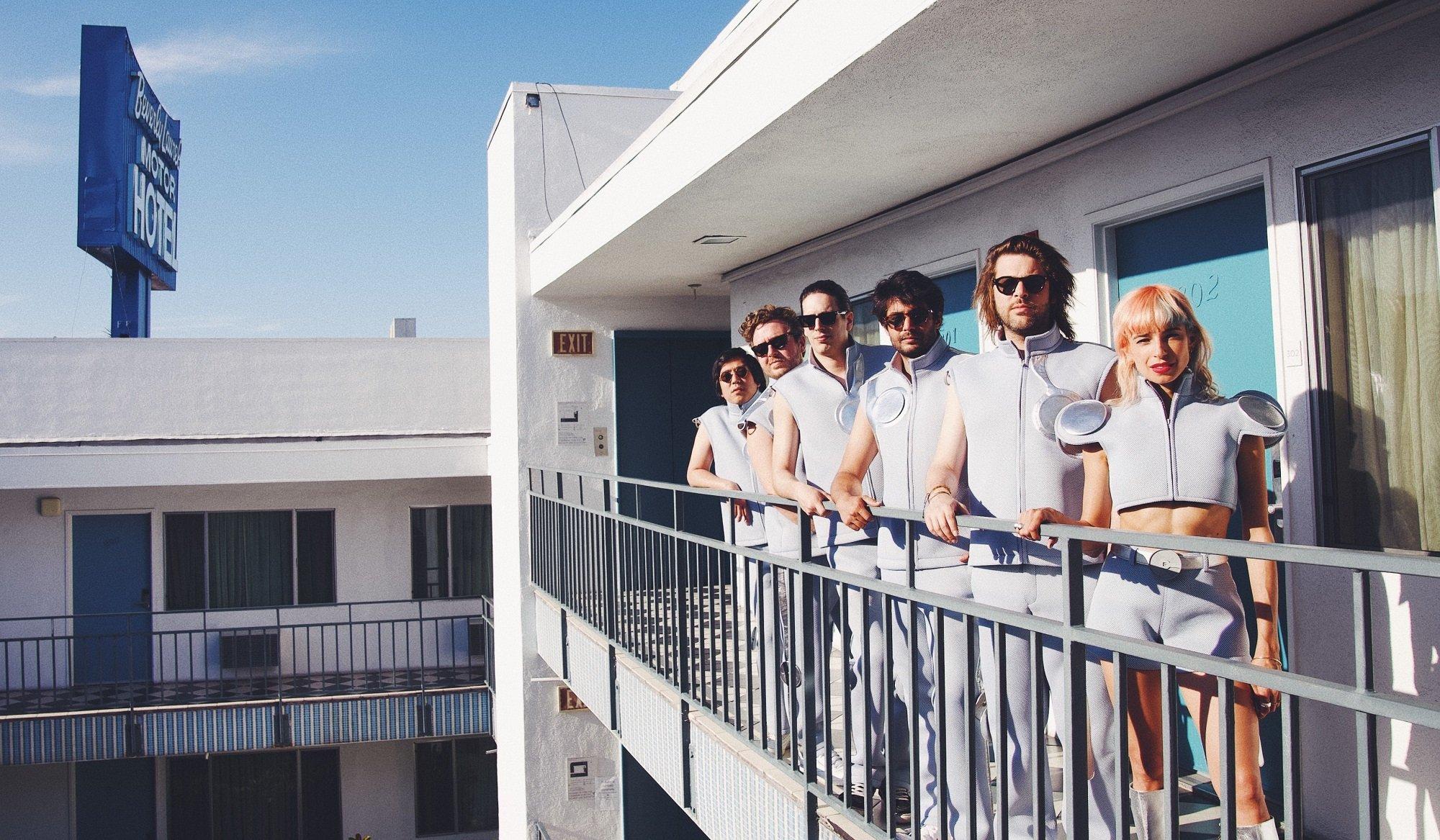
Photo: Manu Milon
interview
On 'Pulsar,' L'Impératrice Are Guided By Vibes: "Expressing Your Feelings Is Really Infused In This Album"
On their first self-produced album, L'Impératrice employed new methods of communication. Whether that was deciding what language to sing in, or offering a song to rapper Erick The Architect, 'Pulsar' indeed has a new beat.
Back in 2011, the Parisian artist Charles de Boisseguin was making funky music by himself. But he knew that his music was too groovy to restrict to recordings. He wanted to do more than be a DJ; de Boisseguin wanted the chemistry of a full band.
He formed L'Impératrice, a six-piece modern disco and funk project featuring de Boisseguin on keys, Hagni Gwon on keys and strings, drummer Tom Daveau, bassist David Gaugué, guitarist Achille Trocellier, and vocalist Flore Benguigui. The group released their third album, Pulsar, on June 7.
Prior to Benguigui's arrival in 2015, L'Impératrice were purely instrumental. "Vocals were another instrument we wanted in our music, but we discovered we had to change our way of composing,"says Gwon. "When you don't have any vocals, you're free to put everything you want as a musician. Sometimes too many things. But when you have vocals, you have to be very balanced. It wasn't easy at first."
However, L'Impératrice's creative process coalesced and, soon, their floaty, dance-forward style had garnered a passionate international fanbase. In support of their second album, 2021’s Tako Tsubo, they played all over North America, Europe, and the UK to sold-out crowds and packed festival stages at Coachella, Lollapalooza, and Outside Lands. "It's not usual for a French project or band, especially a band, to be known abroad. So, it’s like a dream coming true all the time," Gwon notes.
Pulsar — L'Impératrice's first self-produced effort —was inspired by these international travels, and showcases the band's diverse backgrounds and interests. "It's kind of paradoxical, because it's the first album we made ourselves. But it's the first time we collaborated with that many people," Benguigui says.
On Pulsar, Benguigui writes and sings in three languages; Neapolitan vocalist Fabiana Martone sings in Italian on the joyous dance jig, "Danza Marilù." Hip-hop/neo soul singer Maggie Rogers' somber and soulful tones are a harmonious addition to the seductive "Any Way." The Flatbush Zombies’ Erick The Architect increases the velocity of his rhymes to accommodate the band’s upbeat funk on "Sweet & Sublime."
"We wanted to bring back the raw energy of the live shows. To make it a bit rougher, uptempo, more representative of what we are doing live," Gwon says, adding that no producer outside the band would truly know such intricacies. "That's something that only we could think about."
With Pulsar out in the world, L'Impératrice is putting renewed focus on their live show. They'll begin a tour of North America and Europe in September, and are ready to give their international fans everything they have. Following a tour rehearsal at Coopérative de Mai in Clermont-Ferrand, members of the band chatted with GRAMMY.com about working with different collaborators, writing in multiple languages, and the legacy of funky French music.
One of the songs on the album is called "Love from the Other Side." What is it like for you to have love from the other side, i.e., from fans all over the world?
Trocellier: It feels amazing. We’re very lucky.
Benguigui: We don't really know why. I sing in French most of the time. In the beginning, they wanted me to translate the French lyrics and do English versions. The first album actually was also released in English which really didn't work abroad.
Gwon: At the first concert we did in New York, people were telling us, "Why are you singing your songs in English? The original ones are in French, and we like them better than the ones in English." So just be yourself.
Benguigui: So we decided not to be worried about it and just let this happen. And actually, it's very surprising how much people love the French language abroad.
You shouldn't change your original intentions in order to satisfy the audience.
Benguigui: Exactly. I think it also really changed the emotion of the vocals. If it's in a different language, it can really be a different song. It’s too important to change.
When I sing in French, I'm more likely to use metaphors and images. For example, the song "Pulsar" is a very metaphorical song about the state I was in when I was writing it. When I'm singing in French, it's somehow closer to me; because it's my language, I need to hide behind some images. In English, I'm way more straightforward because it's not my language. I'm a bit more first-degree in English. Sometimes it’s nice to be first-degree.
Gwon: I think we are lucky to be at the right period of time. Thirty years ago or 20 years ago, that [interest in foreign language music] wouldn't have been possible, even in the U.S. But now everyone is much more open to other languages. It's not a handicap. It's something that is great.
Funky French music has always had a huge audience in America: Daft Punk, Justice. Kavinsky. What is it like to continue that legacy?
Trocellier: It's an honor to be close to these guys.
Gwon: We don't even know how to place ourselves compared to them, because for us, they’re big influences. We grew up with their music. We are very happy when people tell us that we might be in the same circle.
Benguigui: There's also a bit of pressure to feel like we represent France abroad. It's nice to be able to spread French culture in countries that might not have heard loads of French music before.
This album has more English vocals than either of your past albums — both from Flore and your featured artists. Why was it time to explore that language?
Benguigui: We really rarely say, "Okay, that should be in English or in French." It happened, actually, once on this album. But it was for the Italian song. These guys made the demo, and they were like, "We feel this like an Italian groove." It should be Italian.
Daveau: An Italo-Disco groove.
Benguigui: I happened to be in touch with [Fabiana Martone] at that moment. So we made it happen. But it's really the only case. When I make the melody, I'm mumbling over an instrumental, and that’s when I can feel the language I'm gonna use. It was the same for the guests we have on this album: We knew these people liked our music, and so they happened to be English-speaking, or Italian-speaking for Fabiana. It was a nice coincidence, but it could have been a French guest if it was the right one at the right time for the right song.
Gwon: It's more about the vibe of the track; the vibe that Flore feels when she composes her melody. Maybe one or two times you started with another language.
Benguigui: [Lyricaly] I can't say the same things in my native language and a foreign language. It's a different way to show feelings. That's why I used the Spanish phrase in "Me Da Igual." I felt I needed this language to hide something or to present it in a different way.
On "Any Way," before we had Maggie Rogers, you guys were saying we needed something kind of dramatic in the vocals, and it's not really my thing being dramatic. So we were thinking of some vocalists, and all the references that came into our minds were English. So that's also why we had the huge honor to have Maggie on this track.
Honestly, I was a bit paralyzed when I was with her because she's so talented. She was making the melody and lyrics at the same time. We had just met, and she was just so confident. She knew how to do her job. She's so on it. I was just in the corner watching and being absolutely amazed.
I added my vocal parts afterward. So that was not a magical moment of the two of us singing together, because, honestly, I was petrified. But it was very interesting. I learned a lot watching her.
"Sweet & Sublime" with Erick The Architect is on the faster side for a rap song. Were you intending to have a rapper on this track, or did that unfold later?
Gwon: Flore made a demo where she was semi-rapping, and so we kept that. But we are also very fond of hip-hop. We thought it might be time to ask someone to add this little touch of hip-hop.
Benguigui: But it was tricky because we didn't have much time. And so, as a security, I recorded two verses. There was a bit of space after my first verse for some rap if someone was interested. And so we sent it to Eric, who we really like. We had not met him before, actually. We met him through FaceTime, and we explained the vibe of the song.
I remember telling him this is not another love song. It's a song about friendship; it's a song about your gang, but in a very non-violent and positive way. He came back to us with one verse after my first verse. We listened to it, and it was too good to have him just at the beginning. So we asked him, "Okay, man, we're gonna remove my second verse. Can you please just come back in the song later?" He did it. And it sounds super cool.
This was your first album you produced on your own. What was it like to experiment in this way without the limitations of another producer?
Trocellier: It was a big relief. We were very happy about trusting ourselves, and at the same time, it was a bit scary because we never worked like this on albums.
Gwon: For the instrumentals this time, we made small teams. And then we mixed up all the teams. So, during the whole process of the album, everyone worked with everyone. That was the first time it was so well balanced between everyone.
It has been 12 years now that we’ve worked together. We know what we can do. And we know what we can't do. If we want things that we can't do, we know that we have to ask other people, but for what we can do, let's try to do it ourselves.

